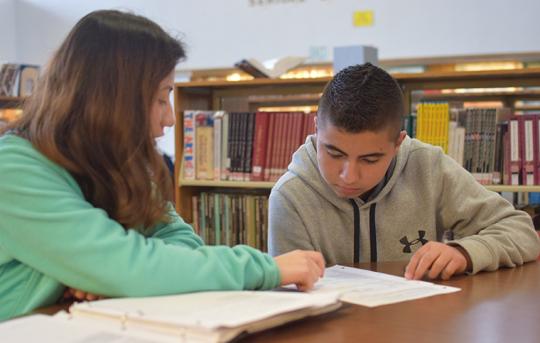Ensuring Success For Migrant Students
For students across the nation, graduating from high school is a celebratory achievement. This task is made much more difficult for children of migrant farm workers and low-income families with no knowledge in guiding their kids to obtain higher education. To counteract the disadvantages facing migrant students, Sonoma State University has created a program modeled after the California Mini-Corps program called the Migrant Education Advisor Program (MEAP).
MEAP began in 1996 in collaboration with the Office of Migrant Education and the Master in Counseling Program. In partnership with participating school districts, this program provides students with the advising and support they need in order to be successful academically and socially.
Sonoma State students are hired to give local migrant middle school and high school students academic and career guidance that will ensure they graduate from high school and are able to achieve their goals. Many migrant students and parents are unaware of the high school graduation requirements, let alone what is needed in order to attend college. Though they may have the motivation to achieve higher education, to these students a college degree may appear to be an unreachable goal.
"Many students tell us that they did not believe they had any options," says Sonoma State MEAP coordinator Giselle Perry. "These kids do not think attending college is possible. MEAP shows them the options and motivates them to continue their education."
MEAP advisors also give migrant students social and emotional support to help them feel comfortable in their new home. They strive to make students proud of their culture while building leadership skills and self-confidence.
"We want them to feel a tie to the community as well as their native culture," Perry says.
Educating and connecting with the parents of these students is an important aspect of the program. Migrant parents often feel disconnected and intimidated by the education system, and they are unsure how to help their children succeed. By reaching out to parents, student advisors are able to promote a comfortable and healthy home life for the students.
The program is mutually beneficial--this year there are four SSU masters program students and 18 undergraduates involved in MEAP, and the program is constantly looking for students to join the advisement team. Students are required to maintain a 2.3 GPA with a full course load to be employed by the program. All majors are accepted but a serious interest in a career in school counseling is preferred.
Over the past 13 years, MEAP has positively affected many students in the Bay Area. Unfortunately, as the budgets in California become tighter, programs such as these continue to loose precious funding. At its peak, MEAP was touching over 1,500 students annually. That number has now dropped to around 1,000 per year.
MEAP is in the process of solidifying a relationship with Sonoma State in order to create stability and support for those first generation students with the desire to achieve higher education, but need guidance to pursue their dream. Programs to help disadvantaged children are vital to the success of our community and country as a whole. By giving kids the tools they need to succeed to their full potential, MEAP and programs like it may be changing their lives and the future of our country.
--Dana Denesha with Joseline Hernandez



